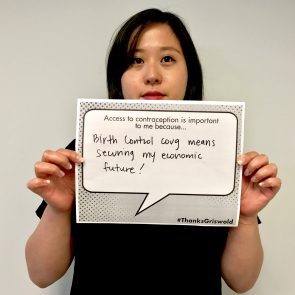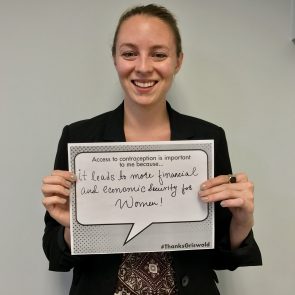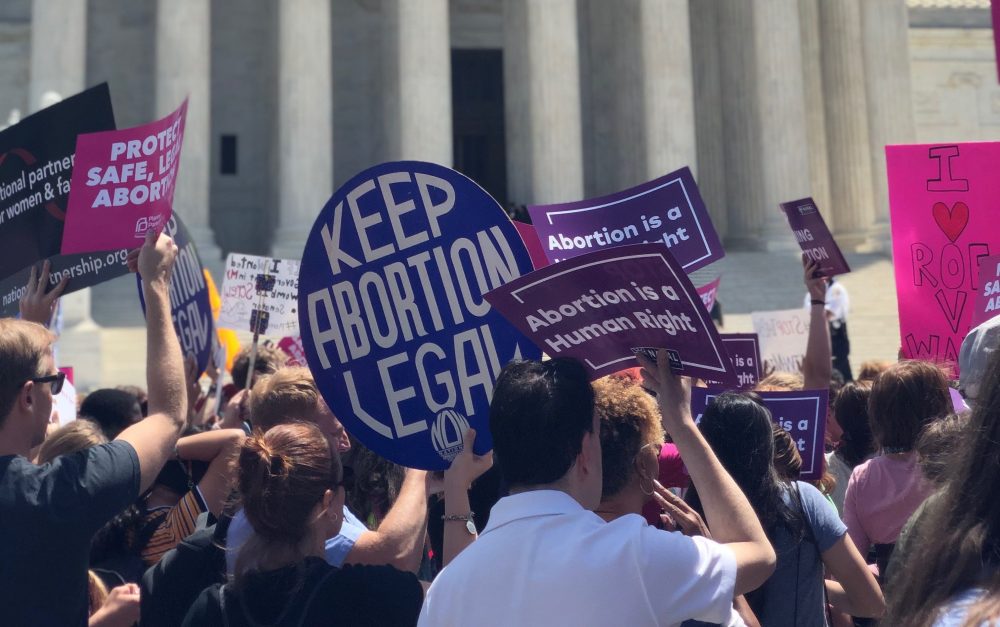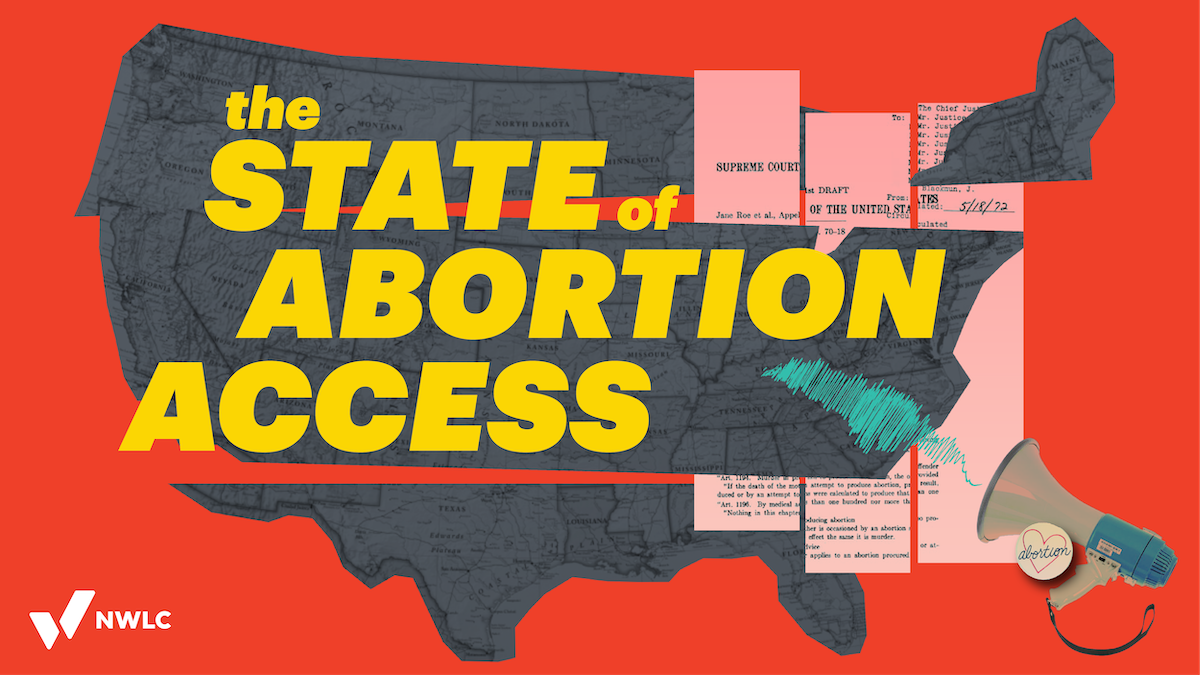Griswold’s 52nd Anniversary Means Business: How Keeping the ACA Birth Control Benefit Strengthens Women’s Economic Security

 In classically tacky fashion, the leaked draft of the Trump Administration’s plan to massively roll back birth control benefits under the Affordable Care Act (ACA) coincides with the 52nd Anniversary of the landmark Supreme Court case Griswold v. Connecticut, which guaranteed legal access to birth control. Under the leaked draft, hundreds of thousands of people could lose access to no-cost birth control coverage because employers with either a “moral or religious objection” would be exempted from providing coverage to their employees. The term “moral” is left undefined and open-ended, allowing employers’ whims to dictate whether or not women receive coverage for their basic healthcare needs. In the midst of our frustration over this new rule, though, we must not forget the truly epic legacy that Griswold inspired.
In classically tacky fashion, the leaked draft of the Trump Administration’s plan to massively roll back birth control benefits under the Affordable Care Act (ACA) coincides with the 52nd Anniversary of the landmark Supreme Court case Griswold v. Connecticut, which guaranteed legal access to birth control. Under the leaked draft, hundreds of thousands of people could lose access to no-cost birth control coverage because employers with either a “moral or religious objection” would be exempted from providing coverage to their employees. The term “moral” is left undefined and open-ended, allowing employers’ whims to dictate whether or not women receive coverage for their basic healthcare needs. In the midst of our frustration over this new rule, though, we must not forget the truly epic legacy that Griswold inspired.
In 1965, the Supreme Court in Griswold invalidated Connecticut’s law prohibiting married couples from using birth control. Although the right to birth control in Griswold initially applied only to married couples, it was soon expanded to unmarried people through a case called Eisenstadt v. Baird. As the first case to unequivocally recognize the right of privacy, Griswold laid the foundation for a broad array of other privacy-based rights, including how you define your family, raise your children, and choose with whom to have intimate relationships.
The legacy of Griswold and the right to birth control have undoubtedly improved women’s economic position in the United States. By being able to choose whether and when to have children, women are better able to plan their lives and, in turn, are more financially stable. The availability of birth control is associated with “increases in U.S. women’s education, labor force participation, and average earnings, coupled with a narrowing of the wage gap between women and men.” Additionally, there are now more women in higher paying professions due to birth control, such as doctors and lawyers.
 While I am thankful for the foundation that Griswold created, I recognize that a legal right alone is insufficient to guarantee real access to birth control for countless Americans. A legal right is only beneficial if all women are actually able to meaningfully access birth control. For many, the cost of birth control is prohibitively high without insurance coverage under the ACA. If we want women to have the ability to make the best decisions for their lives, including decisions that improve their economic security, we need to ensure that birth control is equally available to women of all income levels and not merely to those who can afford birth control without insurance. To give Griswold the teeth it deserves, we should push to preserve the ACA’s birth control benefit.
While I am thankful for the foundation that Griswold created, I recognize that a legal right alone is insufficient to guarantee real access to birth control for countless Americans. A legal right is only beneficial if all women are actually able to meaningfully access birth control. For many, the cost of birth control is prohibitively high without insurance coverage under the ACA. If we want women to have the ability to make the best decisions for their lives, including decisions that improve their economic security, we need to ensure that birth control is equally available to women of all income levels and not merely to those who can afford birth control without insurance. To give Griswold the teeth it deserves, we should push to preserve the ACA’s birth control benefit.




